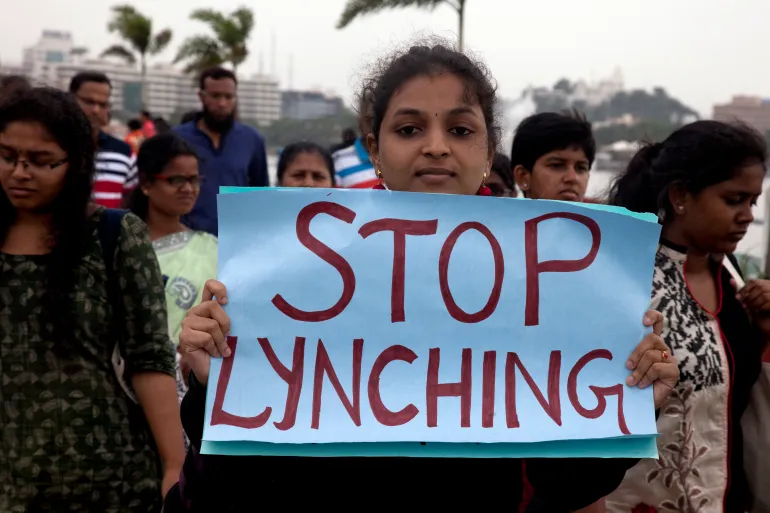Muslims Lynched in India Post-Election: ‘Eid Means Mourning’ Amid Hindu Majoritarian Party’s Setback
Recent attacks on Muslims in India have brought to light the troubling aftermath of the election setback for Prime Minister Modi’s Hindu majoritarian party, with analysts cautioning that this does not signify a victory for secularism. The incidents, including disturbing cases of lynching and violence against Muslims, serve as a grim reminder of the deep-seated communal tensions and rising extremism in the country.
The shocking assaults have sparked widespread condemnation and renewed discussions on the state of religious tolerance and minority rights in India. Observers argue that the electoral defeat of Modi’s party has not translated into improved conditions for religious minorities, as evident from the tragic events unfolding in various parts of the country.
Analyzing the Political Fallout
Analysts and experts point out that the electoral setback for the Hindu majoritarian party has not led to a decrease in religiously motivated violence or an increase in secular governance. Instead, the attacks on Muslims highlight the persistent challenges faced by religious minorities in India, despite shifts in political dynamics.
Impact on Secularism and Minority Rights
The incidents have reignited debates on secularism and the protection of minority rights in India’s democratic framework. Critics argue that the rhetoric and policies of the ruling party have contributed to an atmosphere of intolerance and discrimination, exacerbating divisions within society. The recent violence underscores the urgent need for robust measures to safeguard religious freedoms and promote inclusive governance.
International Concerns and Reactions
The attacks on Muslims in India have garnered international attention and concern, with human rights organizations and foreign governments urging authorities to take decisive action to prevent further violence. The incidents have raised questions about India’s commitment to upholding secular principles and ensuring the safety and dignity of all its citizens, regardless of religious affiliation.
Call for Accountability and Justice
In response to the disturbing incidents, there is a growing demand for accountability and justice for the victims of religiously motivated violence. Civil society organizations, activists, and concerned citizens are calling on authorities to thoroughly investigate the attacks, prosecute the perpetrators, and take proactive measures to prevent future occurrences.
Looking Ahead
As India navigates the aftermath of the elections and confronts the challenges posed by communal tensions, there is a pressing need for dialogue, reconciliation, and meaningful reforms to uphold secularism and protect the rights of religious minorities. The incidents of violence against Muslims serve as a sobering reminder of the importance of fostering a society where diversity is celebrated and where all individuals can live in peace and dignity.

